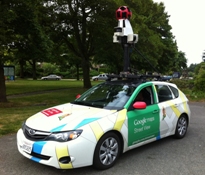You Knew Your New iPhone Was Cool, but Did You Know….?
 Apple is marketing its newest smartphone operating system, iOS 8, as a bulwark of personal privacy. Apparently, not even Apple itself can bypass a customer’s passcode and extract data from an iPhone that runs the new operating system. This means that even in response to a court order, the company will be powerless to comply. Competitors are likely to follow suit.
Apple is marketing its newest smartphone operating system, iOS 8, as a bulwark of personal privacy. Apparently, not even Apple itself can bypass a customer’s passcode and extract data from an iPhone that runs the new operating system. This means that even in response to a court order, the company will be powerless to comply. Competitors are likely to follow suit.
This is a development with profound implications for law enforcement, which views the ability to obtain such data with a warrant as crucial in its efforts to combat crime and terrorism. Defenders of the new technology point out that law enforcement may be able to obtain the same data in different ways; for example, if the data is stored “in the cloud” or if the password can be deduced somehow.

 All of the interest in the Supreme Court tomorrow is likely to be focused on
All of the interest in the Supreme Court tomorrow is likely to be focused on 